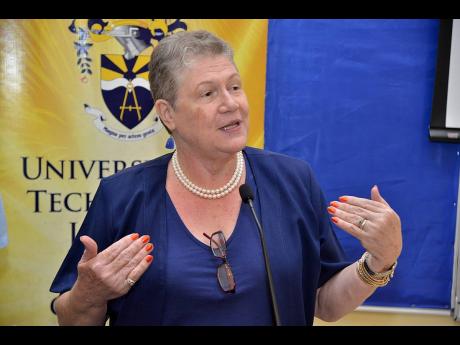Need to create more awareness around mental health of the elderly
Though there has been an increase in awareness of the well-being needs of the elderly, professor of public health and ageing at The University of the West Indies (UWI), Mona, Dr Denise Eldemire-Shearer, says there is still a lot of ground to cover on their mental health.
In 2011, research led by Eldemire-Shearer, along with the National Health Fund, found that approximately 63.3 per cent of the elderly population, 60 years and over, were engaging in fitness activities. Half of that number reported doing 15 minutes of rigorous activity.
Since then, Eldemire-Shearer noted that there has been an increase in the awareness of the importance of physical activity because of the various campaigns that have been encouraging exercise.
“Promoting exercise is now one of the foundation pillars of managing chronic disease,” she said.
With an ageing population and non-communicable diseases such as diabetes, cardiovascular disease and cancer as the leading causes of death in Jamaica, “... you think of medication, you think of diet, you think of physical activity, I think that message is now cross-cutting because it’s across all of the social groups,” she said.
However, Eldemire-Shearer said that while the awareness and the involvement in physical activities have expanded, there is still a lot more to be done in regard to the mental health of the elderly.
To bring a close to Senior Citizens’ Week, the Ministry of Health and Wellness, in collaboration with the National Council of Senior Citizens (NCSC), hosted a wellness webinar on October 1, the International Day of the Older Persons.
“Because of COVID-19, there is a move now to focus on the mental health of older people, but prior to this week, I think we assumed that all older people were okay and that they didn’t have the stresses and strains of life, and of course they do,” said Eldemire-Shearer, who also works with the NCSC.
“So I do think the current effort to focus on the mental health of older people is a good initiative and well needed.”
HIGH RISK FOR COVID-19
Counsellor and certified consultant in emotional intelligence, the Rev Neilson Waithe, warns family members to be keen with the elderly, especially in regard to the effects of coronavirus and the mandated isolation by the Government.
Being listed among the vulnerable has made many elderly persons extremely anxious, causing them to refuse to leave the house even for medical care, he said. Waithe said while younger people will display more attention-seeking behaviour, depression and anxiety manifest themselves differently in older people.
“The two main signs would be not eating, not talking, those are the most common signs that you have to look for,” said Waithe.
“I know it’s hard for family members right now, but as safely as you can follow the protocols, try changing where they are. Just changing their view and the situation for a short while makes a lot of difference.”
Prime Minister Andrew Holness has advised family members to visit their elderly but to maintain social distancing and wear the necessary protective gear.
Eldemire-Shearer suggests that they engage in activities such as raking leaves or walking around the yard to get fresh air to help their mental health, while providing physical activity.

